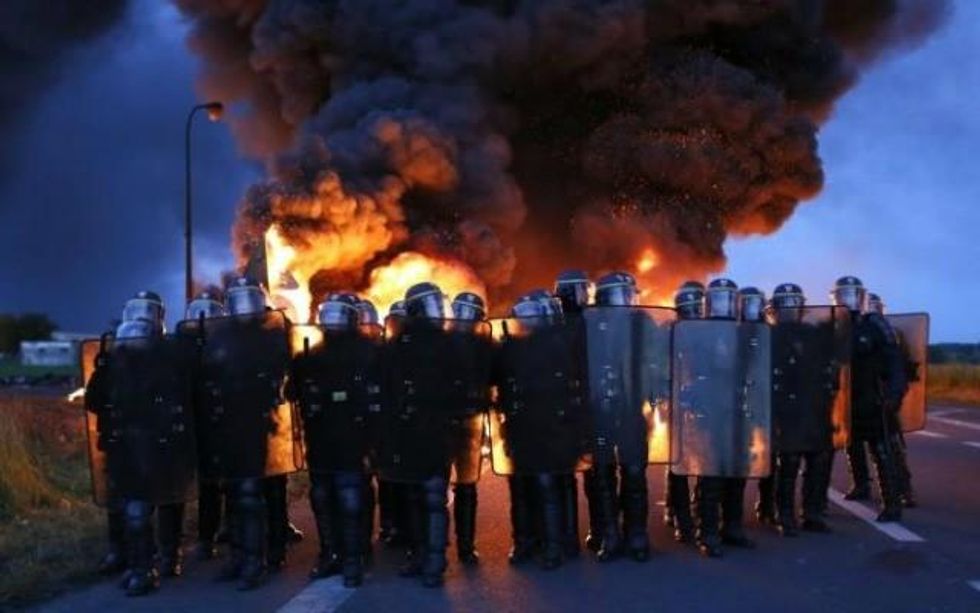Striking workers with the Confederation Generale du Travail (CGT), one of France's largest unions, are clashing with French government forces after the union members blockaded oil refineries and depots in response to President Francois Hollande forcing unpopular labor reforms through parliament earlier this month.
Hollande's proposed legislation would make it easier to fire employees, increase employees' work hours, and move jobs offshore, in defiance of France's long history of labor protections.
The blockades shut down a quarter of the France's gas stations and forced the country to dip into reserve petrol supplies.
France's President Francois Hollande was forced to deny that the country was facing a nationwide uprising akin to the worker and student uprising of May 1968, as riot police clashed with protesters around the country late Tuesday evening and early Wednesday morning.
The government dispatched the riot police to shut down picket lines, reports France24:
Police used water cannons in the early hours of Wednesday to dislodge some 80 unionists who were blocking a fuel depot at Douchy-les-Mines, in northern France, union and police officials said. Other depots were unblocked by police on Tuesday.
Undeterred, CGT chief Philippe Martinez told France Inter: "We will carry on."
After riot police dispersed a picket line in front of a large refinery in Marseille on Tuesday, "the union federation retaliated by calling for strikes in all eight of the country's refineries," reports the Independent.
CGT members also voted to shut down the Nogent-sur-Seine nuclear power plant south of Paris for 24 hours, beginning at 7pm Central European Time on Wednesday.
A spokesperson for CGT's energy division told France24 that "Paris and workers at other nuclear plants will meet today to decide on possible further strikes."
In addition, "workers at a major oil terminal in the port of Le Havre called a strike on Thursday to block imports," reports the Telegraph.
The union's sole demand is that the labor reform law be thrown out.
Hollande's Socialist party appeared to offer a small concession on Wednesday "by suggesting it could alter a key clause in the labour law allowing working time agreements to be negotiated within individual companies rather than across sectors," the Telegraph reports. "Bruno Le Roux, head of the Socialists' parliamentary group, also said the government may be willing to do the same for negotiations on increasing working hours."
The union's response to the proposed concessions has not yet been reported.
As the nation's incipient pro-democracy "Up All Night" youth movement joins the striking workers, Hollande "was forced to deny that France faced a 'May revolution,'" writes the Independent.
"May 1968 involved millions of people, students occupying universities, workers occupying factories," Hollande said. "This is just a traditional conflict."




